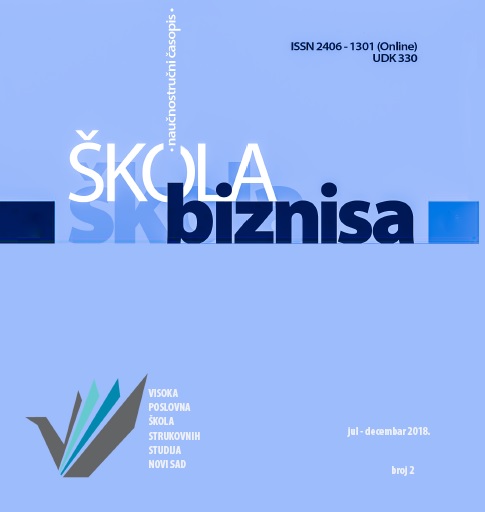PARADIGM OF SUSTAINABILITY IN THE CONCEPT OF HUMAN DEVELOPMENT
Abstract
The concept of human development combines the production and distribution of goods. The use of income is as important as its generation. There are four components of human development: equity, productivity, competence and sustainability. The paper considers the sustainability paradigm as a component of human development. Sustainability, in short terms, signifies a responsible attitude toward future generations. Namely, future generations should have the same development opportunities as the present generation, that is, the opportunity to enjoy the level of well-being of the current generation should not be denied to them. Equal opportunities must be provided for intragenerational and intergenerational justice. Based on the nature of the answers about the substitutability of certain forms of capital in the process of generating economic growth, four versions of sustainability can be defined; very weak sustainability, weak sustainability, strong sustainability and very strong sustainability. The authors came to the conclusion that the concepts of very poor and poor sustainability are not in agreement with the basic idea and goals of the concept of human development that concerns expanding the possibility of choosing. On the contrary, the concept of strong and particularly very strong sustainability expresses a responsible attitude toward future generations and functions in expanding opportunities for people as well as maximizing the level of their well-being in the long run.
- Authors retain copyright and grant the journal right of first publication with the work simultaneously licensed under a Creative Commons Attribution License that allows others to share the work with an acknowledgement of the work's authorship and initial publication in this journal.
- Authors are able to enter into separate, additional contractual arrangements for the non-exclusive distribution of the journal's published version of the work (e.g., post it to an institutional repository or publish it in a book), with an acknowledgement of its initial publication in this journal.
- Authors are permitted and encouraged to post their work online (e.g., in institutional repositories or on their website) prior to and during the submission process, as it can lead to productive exchanges, as well as earlier and greater citation of published work (See The Effect of Open Access).

